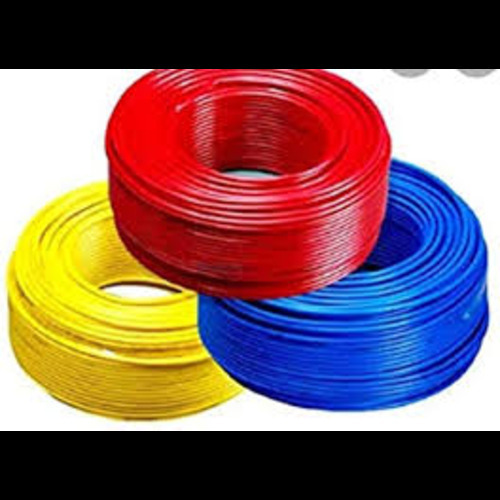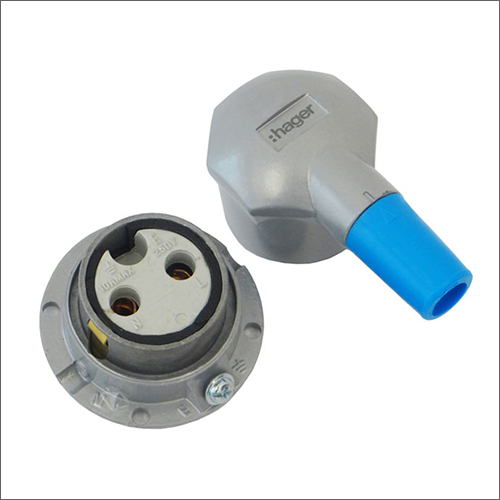RR Cable
Product Details:
RR Cable Price And Quantity
- 1200 INR/Box
- 1200.00 - 10000.00 INR/Box
- 1 Box
RR Cable Trade Information
- Cash Advance (CA) Cash in Advance (CID) Cheque
- 1000 Box Per Day
- 3 Days
- Standard Packaging
- All India
Product Description
RR Cable, commonly known as Reinforced Rubber Cable, is a type of electrical cable that is designed to offer both electrical conductivity and enhanced mechanical protection. It is primarily used in environments where the cable is exposed to physical stress, moisture, and potential damage. The "RR" typically stands for Reinforced Rubber, which refers to the insulating and protective layers made from rubber that is reinforced with materials to improve its durability and performance.
RR Cable Supplier in India
RR Cable Supplier in Gujarat
RR Cable Supplier in Vadodara
RR Cable Trader in India
RR Cable Trader in Gujarat
RR Cable Trader in Vadodara
Here are the key components and features that RR cable typically contains:
1. Conductor (Core)
- Copper or Aluminum: Like most electrical cables, RR cables contain a conductor made from either copper or aluminum. Copper is more common due to its superior conductivity, while aluminum is used in larger cables for its cost-effectiveness.
- Copper: Known for its excellent conductivity, copper provides low resistance to electrical current and is ideal for standard applications requiring high-performance wiring.
- Aluminum: Aluminum is lighter and less expensive but has higher resistance than copper. It is typically used in larger cables for low- to medium-power applications.
2. Conductor Insulation
- The conductor is usually covered by an insulation layer to prevent direct contact with external conductive materials and to avoid electrical shorts or shocks. In RR cables, the insulation is typically made from rubber, which provides flexibility and protection.
- Rubber Insulation: The rubber insulation is designed to be highly resistant to electrical conductivity and provides durability against external environmental factors such as heat, moisture, and mechanical stress. It also adds flexibility to the cable, making it suitable for mobile and movable applications.
3. Reinforcement Layer
- The reinforced layer is one of the key characteristics of RR cables. It provides mechanical protection against external damage such as abrasion, cuts, and physical impact.
- Reinforced Rubber: The rubber is enhanced with fibers or other materials like steel wire or textile braiding. The reinforcement ensures that the cable can withstand physical stresses while maintaining its insulating properties.
- In some RR cables, steel wire armor (or a similar metal reinforcement) is added to provide additional protection against damage from impacts, crushes, or mechanical stress.
4. Outer Sheath (Protective Jacket)
- Rubber Sheath: The outer layer of the RR cable is typically a rubber sheath, which further protects the inner components of the cable from environmental elements such as moisture, oils, chemicals, and abrasion.
- Flexible and Durable: The outer rubber sheath provides flexibility and makes the cable suitable for use in industrial environments, as well as for outdoor, underground, or heavy-duty applications.
- Weatherproof: It is typically resistant to weather conditions, including exposure to sunlight, rain, and temperature variations.
5. Grounding Conductor (Optional)
- In some RR cables, particularly those used in power distribution systems, there may be an additional grounding conductor. This is often a bare copper wire or a green-insulated wire, which helps ensure safety by providing a path for fault current to flow safely to the ground in case of an electrical fault.
6. Fire Resistance (Depending on Type)
- Fire-resistant coatings: Some RR cables come with special fire-resistant features or coatings that limit the spread of flames in case of fire. This is particularly important in high-risk environments like industrial plants or public buildings.
- Low Smoke Zero Halogen (LSZH): Some RR cables are made with an LSZH outer sheath, which is designed to emit low smoke and zero halogen gases when exposed to fire, enhancing safety in confined spaces.
7. Temperature Rating
- RR cables are typically rated to operate in a wide range of temperatures, depending on the rubber insulation used. Typical temperature ratings are:
- -15C to 70C: Standard temperature range for RR cables, suitable for general indoor and outdoor applications.
- Some specialized RR cables may be rated for higher temperatures, depending on the type of rubber insulation and the application.
8. Flexibility and Mobility
- Flexible Construction: One of the significant advantages of RR cables is their flexibility. The combination of rubber insulation and the reinforced layer allows the cable to be bent and moved around without damage, making it suitable for applications where the cable will be moved frequently, such as portable equipment or machinery.
- High Flexibility: This makes RR cables ideal for use in mobile machinery, electric tools, or temporary power setups in construction sites.
9. Electrical Ratings (Voltage & Current)
- RR cables are designed to handle varying voltage and current levels depending on the conductor size and insulation type. Common electrical ratings include:
- Low-Voltage RR Cables: Typically rated for 450/750V or similar low-voltage systems.
- Medium-Voltage RR Cables: Some RR cables are also available with higher voltage ratings (e.g., 1kV or 3kV), typically for industrial applications.
- The current-carrying capacity of an RR cable depends on its gauge (conductor size), insulation type, and the temperature rating.
10. Applications of RR Cable
- Industrial Equipment: RR cables are commonly used in machinery, power tools, and equipment that require both flexibility and mechanical protection. They are suitable for industrial environments where wires need to be durable and resistant to damage.
- Outdoor Applications: The robust outer layer of RR cables makes them ideal for outdoor applications where the cables may be exposed to harsh weather, such as temporary power installations, electrical connections for outdoor events, or lighting.
- Construction Sites: RR cables are often used in construction settings to provide power to tools, equipment, and temporary power systems.
- Agricultural Equipment: RR cables can be used in agricultural machinery, such as tractors or irrigation systems, where flexibility and protection against environmental damage are important.
- Marine and Offshore Applications: With their resistance to moisture and flexibility, RR cables can also be used in marine or offshore installations, including boats, ships, and offshore rigs.
- Heavy-Duty Equipment: RR cables are suitable for use with heavy-duty machinery in sectors like mining, manufacturing, and automotive production, where the cables are exposed to physical stress.
11. Advantages of RR Cables
- Durability: The reinforced construction of RR cables makes them highly durable and resistant to physical damage, such as abrasions, cuts, and crushing.
- Flexibility: RR cables are flexible, making them ideal for applications where the wire needs to bend or move without damaging the conductor or insulation.
- Weather and Chemical Resistance: The rubber insulation and outer sheath offer good resistance to environmental factors like moisture, UV light, oils, and chemicals, making RR cables suitable for outdoor and harsh environments.
- Safety: The insulation materials and reinforcement help minimize the risk of electrical hazards such as shorts, shocks, and fires, making RR cables a safe choice for industrial and heavy-duty applications.
- Versatility: RR cables are versatile and can be used in a variety of environments, from industrial plants to construction sites and agricultural equipment.
12. Disadvantages of RR Cables
- Cost: RR cables tend to be more expensive than standard PVC-insulated cables due to the higher cost of rubber insulation and reinforcement materials.
- Weight: The reinforcement and thicker construction of RR cables can make them heavier than other types of cables, which may limit their use in applications where weight is a concern.
Conclusion
RR cables are specialized electrical cables designed for high flexibility and enhanced mechanical protection. With their reinforced rubber construction, they are ideal for use in industrial, outdoor, and heavy-duty applications, offering durability against physical stress, environmental factors, and moisture. Their resistance to abrasion and weather conditions, combined with their flexibility, makes them a suitable choice for applications that require both strength and mobility. However, their cost and weight can be considerations depending on the specific requirements of the installation.





 Send Inquiry
Send Inquiry Send SMS
Send SMS